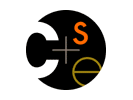
|

CSEP 551: PMP Graduate Operating Systems, Winter 2012 |
|
TA: Owen Kim (ohechkay AT cs DOT washington DOT edu)
Office hours: by appointment (send email)
Lectures: Tuesdays, 6:30pm-9:20pm, in EEB 037.
Papers: you will be responsible for reading approximately three papers before each class, and contributing your thoughts on each assigned paper to the class discussion board before the class that covers it.
Assignments: every other week or so, I'll assign a small, topically related programming assignment or design exercise related to the topics we're covering.
Exam: near the end of the quarter, I'll hand out a take-home final exam. The questions will test your understanding of the material we cover in the reading and during lectures. You'll have a few days to finish and turn in the final exam.
Announcements:
https://catalyst.uw.edu/gopost/board/gribble/25636/The discussion board has three areas:
I'll post papers about two weeks in advance of them being due. Note that you're required to read assigned papers, but the optional additional papers are just that: purely optioin, for your interest, if you choose to go deeper on your own. Discussion board entries for the assigned papers are due by noon on the day of the associated lecture.
You should also be able to do the programming assignments on your own personal machines; none of them require large or exceptionally powerful machines. I'd recommend doing your work on Linux; I'd start with a standard Linux Ubuntu distribution. Note that the department has made virtual machine images available with the departmental linux installation on them. You'll need to get ahold of VMware to use them.
A few rules of the road are worth mentioning. For design questions, you should feel free to talk with each other about the question and ideas that you come up with. You should not, however, share your written answers with each other directly. If you do discuss ideas with each other, please cite who you discussed with in your turned in work. This is mostly so that you get in the habit of properly attributing collaborations.
Similarly, you should feel free to talk with each other about the programming assignments, and share ideas as you see fit. You can also make use of Google or other resources. However, you must not share code with each other, or rely on code you find else where, such as the Web, to solve the programming assignment directly: you must implement your own code to solve each programming assignment. Unless the programming assignemnt specifies otherwise (and a few of them will), tou can pick whatever programming environment or tools to build on that you like -- e.g., you can make use of shells, interpreters, and within reason, libraries or other building blocks that don't directly solve the problem for you. As before, if you do discuss a programming assignment with someone else or find useful sources of information (e.g., code or technical descriptions on the Web), please cite or otherwise attribute all of your sources.